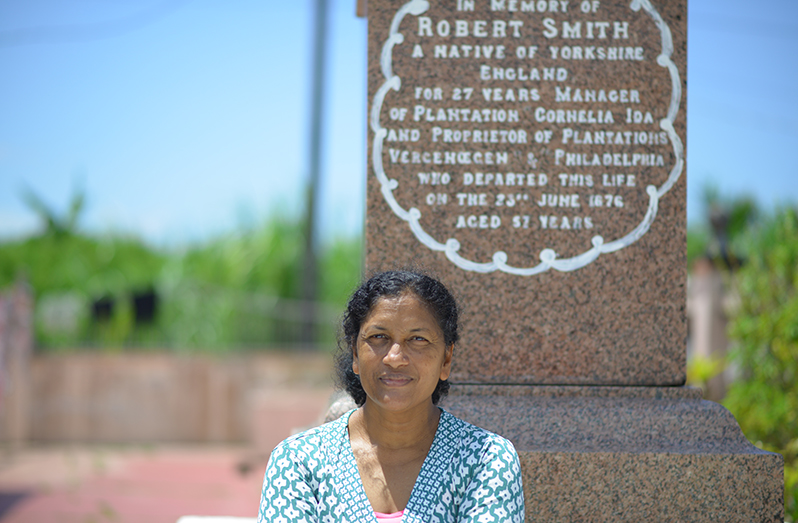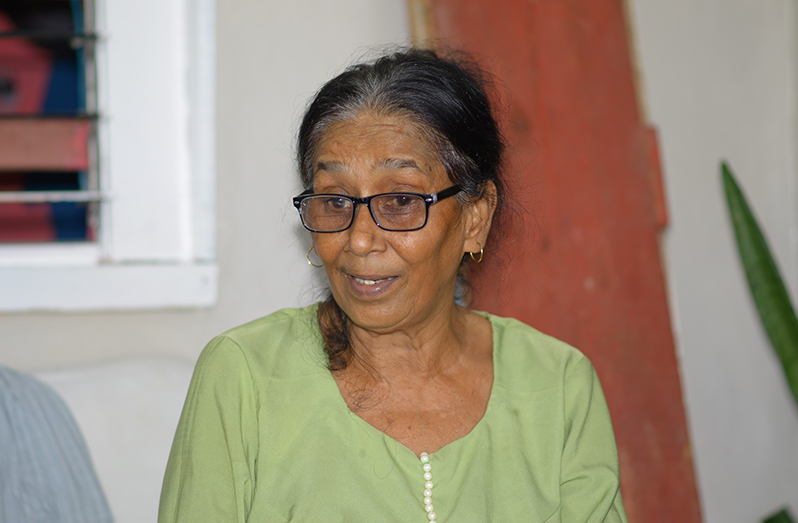Philadelphia residents talk about their history, challenges and way of dealing with them.
By Shaniya Harding
MANY facts surrounding or relating to Philadelphia are disputed by many. But the people who know the village the best, the natives of Philadelphia, say that the stories of their community are more history than hearsay. And regardless of what the community faces, it keeps moving forward, just like its people.
Seeta Basdeo has lived in the village of Philadelphia for what she considers to be half of her life. She had moved out for some time to start a family a few villages away; but she returned after tragedy struck with her mother’s death in 2000. After her return, she stayed in Philadelphia and now has nine children.
And although today she has a quite life, now in her 70s, she says the life of children like her grandchildren is far easier for them than it was for her. Like many of the families in the past, Seeta’s family were rice farmers. And it was something that went on with the family name and something she took on at the age of just eight years old.
“We used to hand cut the rice; we had ten acres of rice land. My father never took on labour. But he had me and my brothers and sisters. Then we had to have the bull go around the paddy and then bag it off.” She went on to say that it was the way they did many things in the past, by hand, the authentic and original way.

As difficult as those days were, Seeta says that she misses them. As someone who has seen two generations of her family being born, she often looks at the changes that happen from one time to another. To her, the biggest generational shift lies in how people handle life. Because even though the old days were harder, they were still somehow better because of how people looked at it and dealt with their challenges.
Still Learning
Seeta is many things: a wife, a daughter and a lover of her village. But she is, first and foremost, a mother. Some 46 years ago, Seeta gave birth to her son Vijai. Like any of her other pregnancies and births, Seets was filled with happiness and had an optimistic future for her child. But things weren’t what she thought it would be.
The first signs of Vijai’s autism came in early childhood. As Seeta explained, he was a sickly child and he didn’t develop like her other children because he wasn’t. “From baby, he took a while before he began to talk. And then, when he started to walk, he limped on the right side. And it took long for him to understand me and for me to understand him. Up to now it’s still hard sometimes,” she said.
Today both Seeta and Vijai are still learning to work with and understand each other. There are instances where they have difficulty communicating, but Seeta is always patient with her son. Vijai is a friendly and helpful individual with a unique love for children and interacting with people. Seeta is determined to care for her son for as long as she can, because every day is different but good with him as both she and him are learning to work together.

Sharing responsibility
The people of Philadelphia are a generous and sharing bunch. They share time, fruits and some even share historic monuments. Lying in between Seeta and her neighbour is the alleged tomb of one Robert Smith. Seeta and her neighbour Devika Chung have maintained the large tomb structure.
Beside the tomb is a large granite structure with a plaque that states, “In memory of Robert Smith.” It also says that he was a native of Yorkshire, England. It goes on to state that he was the manager of Plantation Cornelia Ida and proprietor of plantation Philadelphia and neighbouring Vergenoegen. It was said that he held these titles for some 27 years before his death. The plaque also states the date of his death as June 23, 1876. Robert Smith was allegedly 57 years old at the time of his death.
Interestingly enough, both Seeta and Devika have a profound love for both the monument and memory of Robert Smith. They consider it a part of their history. Because of the division of land, the monument now lies entirely in Devika’s yard. But Seet admits that there would be no issue if it was still on her property as she stated, “I would be happy to take care of the tomb. If I had to get back my piece of land that include the tomb, I would be happy. Because I grew up here, my siblings, everybody and we were never afraid a single day. We used to sweep and clean it, everything.”
Although the idea of an ancient tomb behind one’s home is simply unimaginable to some, the people of Philadelphia look at it the way they look at many other difficult circumstances. They look for a solution or accept the fact and simply learn to persevere without fear. When asked why she never feared the tomb as a child, she stated simply, “It was just never something that ever made me afraid.”



.jpg)








